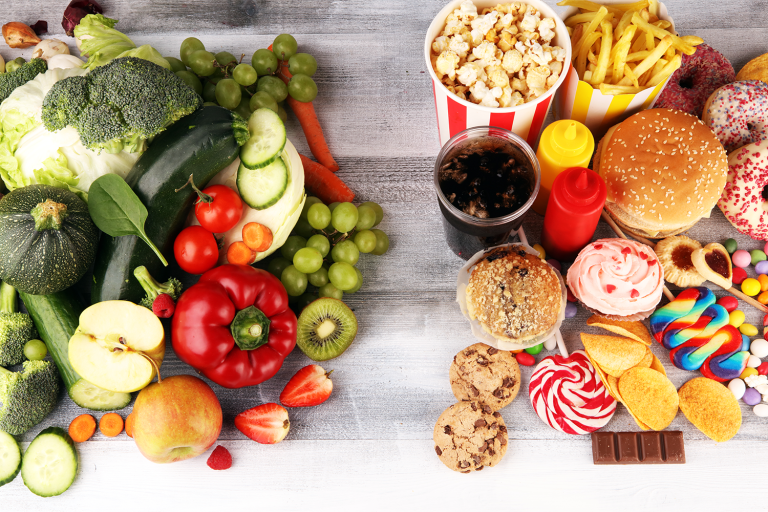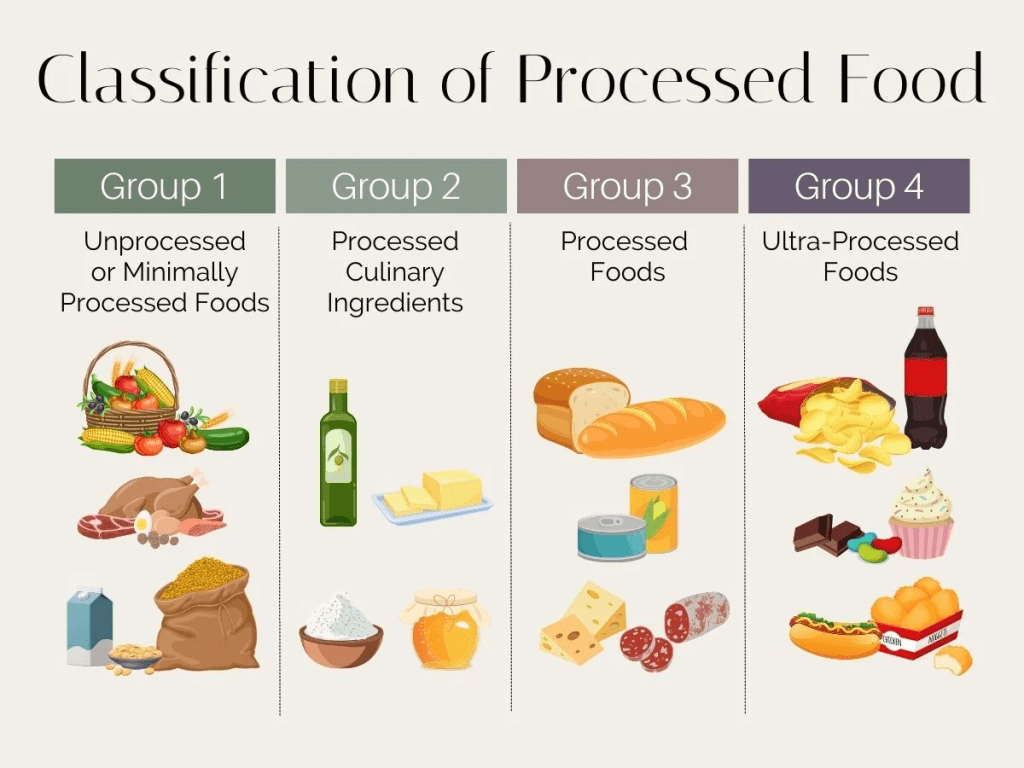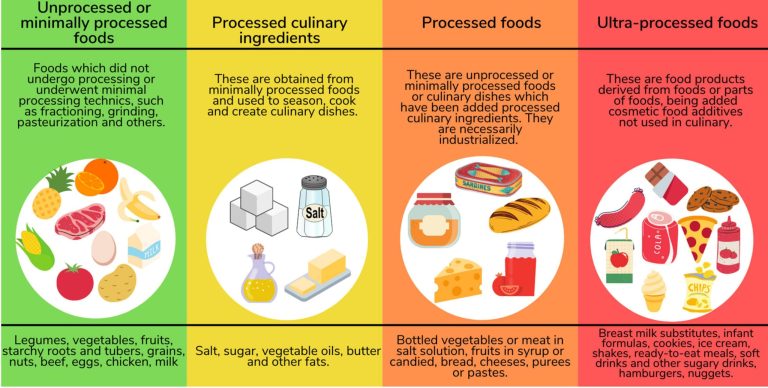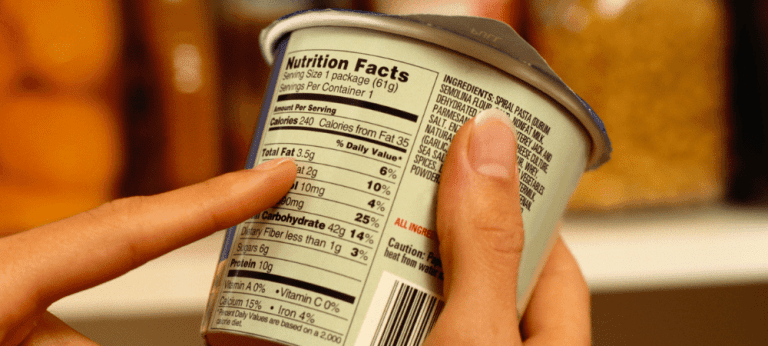
Processed foods have become a staple in modern diets due to their convenience, affordability, and long shelf life. However, Impact of Processed Foods on health is a growing concern. This blog will explore what are processed foods, types of processed foods, their potential health risks, the reasons behind their negative effects, and practical tips for making healthier choices.
Table of Contents
What are Processed Foods?
Processed foods are those that have been altered from their natural state through various methods, such as canning, freezing, refrigeration, dehydration, and the addition of preservatives and additives.
While some processing is necessary to make food safe and extend its shelf life, highly processed foods often contain added sugars, unhealthy fats, sodium, and artificial ingredients.
Types of Processed Foods


Minimally Processed Foods:
These include items like bagged spinach, cut vegetables, and roasted nuts. They have undergone minimal changes but retain most of their nutritional value.
Moderately Processed Foods:
Examples are canned beans, canned fish, and cheeses. These foods have been processed for preservation but are still relatively healthy.
Highly Processed Foods:
These include sugary drinks, packaged snacks, instant noodles, and ready-to-eat meals. They often contain numerous additives and are typically low in essential nutrients.
Impact of Processed Foods
Nutrient Deficiency: Highly processed foods often lack essential nutrients. They are usually low in vitamins, minerals, and fiber, which are crucial for maintaining health.
Weight Gain and Obesity: Processed foods are typically high in calories, unhealthy fats, and sugars, contributing to weight gain and obesity. They can also disrupt the body’s ability to regulate hunger and satiety.
Heart Disease: The high levels of trans fats, sodium, and sugars in processed foods increase the risk of heart disease. These ingredients can lead to high blood pressure, high cholesterol, and inflammation.
Diabetes: Excessive consumption of processed foods, particularly those high in sugars and refined carbohydrates, can lead to insulin resistance and type 2 diabetes.
Causes Behind the Negative Effects


Additives and Preservatives: Many processed foods contain chemical additives and preservatives to enhance flavor, texture, and shelf life. These substances can have adverse health effects.
Unhealthy Fats: Trans fats and saturated fats, commonly found in processed foods, are linked to heart disease and other health issues.
High Sodium Levels: Excessive sodium intake from processed foods can lead to hypertension and increase the risk of stroke and heart disease.
Low Nutrient Density: Processed foods are often calorie-dense but nutrient-poor, leading to a diet that lacks essential vitamins and minerals.
Tips to Avoid or Limit Processed Foods


Read Labels Carefully: Look for foods with short ingredient lists and avoid those with artificial additives, preservatives, and high levels of sugar and sodium.
Cook from Scratch: Preparing meals from scratch allows you to choose whole, fresh ingredients and avoid unnecessary additives. It also gives you complete control over what goes into your food.
Choose Whole Foods: Opt for whole grains, fresh fruits and vegetables, lean proteins, and healthy fats instead of processed options.
Plan Your Meals: Plan your meals and snacks to avoid the temptation of convenient processed foods. Batch cooking and meal prepping can help.


Shop the Perimeter: In grocery stores, the perimeter typically contains fresh produce, meats, and dairy, while the aisles are stocked with processed foods.
Stay Hydrated: Drink plenty of water instead of sugary drinks or sodas. Herbal teas and infused water can be good alternatives.
Healthy Snacks: Choose healthy snacks like nuts, seeds, fruits, and vegetables instead of processed snacks like chips and cookies.
Conclusion:
Processed foods are convenient and often tasty, but their health impacts cannot be ignored. They are linked to various health issues, including nutrient deficiencies, obesity, heart disease, diabetes, digestive problems, and increased cancer risk.
Understanding the causes behind these negative effects—such as high levels of sugar, unhealthy fats, sodium, and chemical additives—can help you make more informed choices.
By reading labels, cooking from scratch, choosing whole foods, and planning your meals, you can reduce your intake of processed foods and improve your overall health.
Making these changes might require some effort, but the benefits to your health and well-being are well worth it. Prioritizing fresh, nutrient-dense foods will help you achieve a healthier lifestyle and potentially prevent many of the chronic diseases associated with processed foods.
Can i order healthy burger from here ?
Pingback: Choose pink over white salt - Pink salt benefits
Pingback: 10 Best Nourishments for Constipation: A Comprehensive Direct to Smooth Digestion -
Thank you for your sharing. I am worried that I lack creative ideas. It is your article that makes me full of hope. Thank you. But, I have a question, can you help me?
You’re very welcome! I’m glad my article could inspire you and give you hope. Don’t worry about lacking creative ideas; sometimes, it just takes a bit of inspiration to get the creative juices flowing. I’d be happy to help with your question. What do you need assistance with?
Your point of view caught my eye and was very interesting. Thanks. I have a question for you.
Sure, I’m glad you found it interesting! What’s your question?
Your article helped me a lot, is there any more related content? Thanks!
I’m glad to hear that you found the article helpful! To provide you with more related content, could you please specify the topic or area of interest you’re referring to? This will help me find the most relevant resources for you.
Also, for now you can refer:https://globalwidecare.com/nutrition/